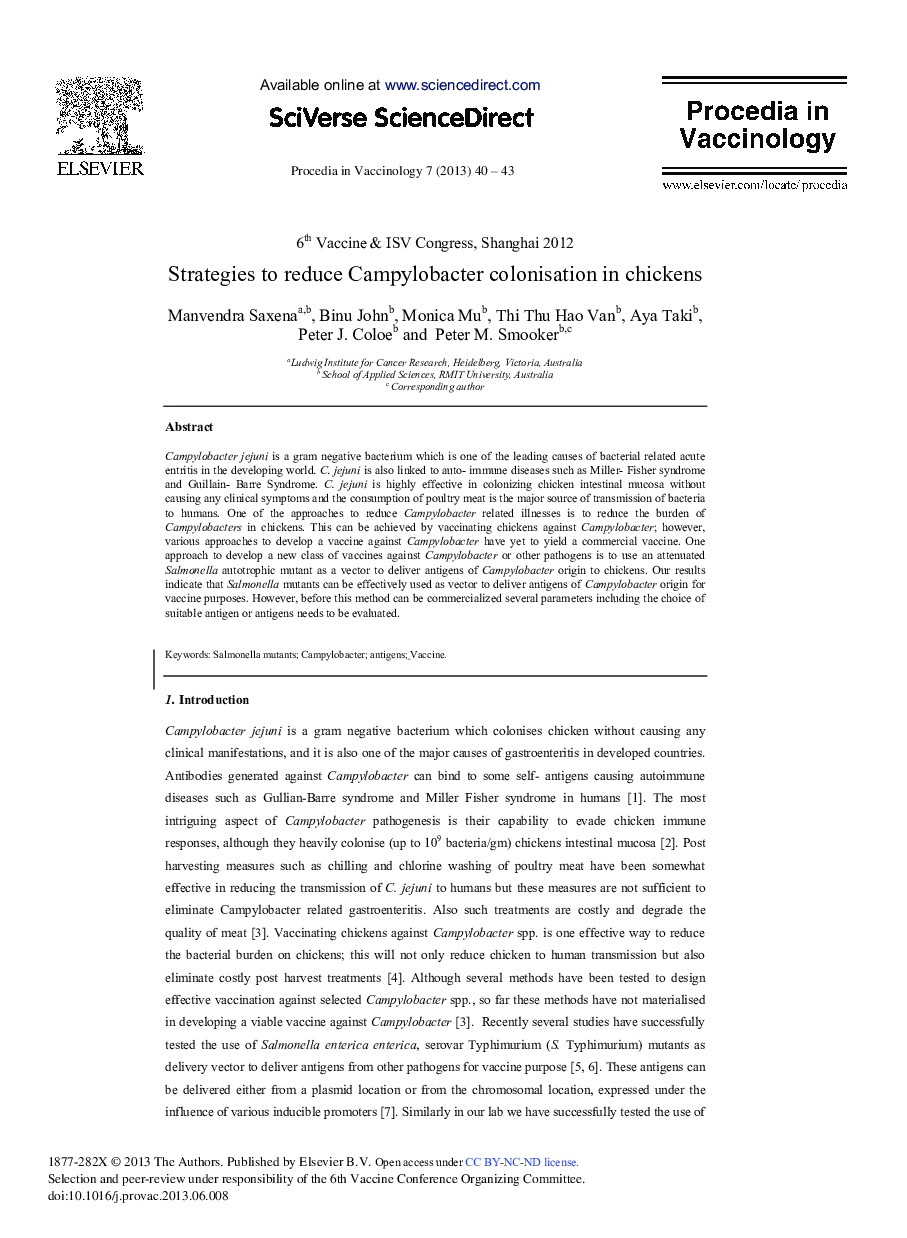| Article ID | Journal | Published Year | Pages | File Type |
|---|---|---|---|---|
| 2473837 | Procedia in Vaccinology | 2013 | 4 Pages |
Campylobacter jejuni is a gram negative bacterium which is one of the leading causes of bacterial related acute entritis in the developing world. C. jejuni is also linked to auto- immune diseases such as Miller- Fisher syndrome and Guillain- Barre Syndrome. C. jejuni is highly effective in colonizing chicken intestinal mucosa without causing any clinical symptoms and the consumption of poultry meat is the major source of transmission of bacteria to humans. One of the approaches to reduce Campylobacter related illnesses is to reduce the burden of Campylobacters in chickens. This can be achieved by vaccinating chickens against Campylobacter; however, various approaches to develop a vaccine against Campylobacter have yet to yield a commercial vaccine. One approach to develop a new class of vaccines against Campylobacter or other pathogens is to use an attenuated Salmonella autotrophic mutant as a vector to deliver antigens of Campylobacter origin to chickens. Our results indicate that Salmonella mutants can be effectively used as vector to deliver antigens of Campylobacter origin for vaccine purposes. However, before this method can be commercialized several parameters including the choice of suitable antigen or antigens needs to be evaluated.
